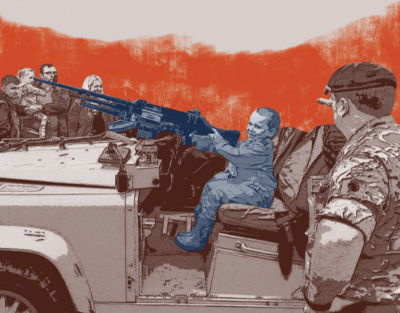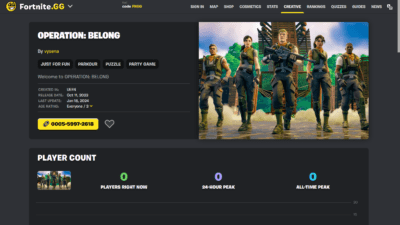Deepcut – another verdict; still more questions….
ForcesWatch comment
Today is a significant day in the Deepcut tragedy – when a family affected by the loss of their child during training at the army barracks may finally get some sense of understanding and justice after many years of battling against the military’s lack of accountability. Attending the inquest it becomes rapidly clear that the army has all the resources on its side and that the Benton family has been up against a culture of secrecy from various authorities.
Two years ago the second inquest into Cheryl James’ death delivered a verdict of suicide. While very disappointing for the James family, the coroner did also make extensive comment on the toxic environment at Deepcut and the serious failures in duty of care by the chain of command.
Today, a similar verdict has just been announced in the case of Private Sean Benton, who died aged 20 from gunshot wounds to the chest. News just in indicates that the family will be formally requesting that the police open a criminal investigation. We were at the hearing and will have a full report in due course. See our twitter feed.
The two inquests and two BBC documentaries that followed the verdict in 2016 have brought to light the accounts of many current and former soldiers who claim to have suffered physical violence and/or sexual abuse at the camp. A group of the bereaved families and other victims have renewed calls for a public inquiry into the now large number of allegations made by army personnel about their treatment at Deepcut, the sexualised culture at the barracks, and the serious deficiencies in current legislation covering investigations within the armed forces.
In fact, it has long been known that potentially many more than the ‘Deepcut four’ were affected. The Deepcut and Beyond campaign group which gave evidence to the two Deepcut inquiries (The Blake Review and Parliament’s Defence Committee’s inquiry which produced their 2005 Duty of Care report) represented more than 50 families affected by inadequately investigated deaths at army barracks.
What becomes clear on hearing the testimony from individuals affected by the bullying or abuse inflicted on them or those they knew is the life-long impact. Many of the Deepcut recruits were young teenagers away from home for the first time.
Problems persist
While the scale of problems at Deepcut at the time of the four deaths was unusual and the army has instigated a number of reforms in the years since, it is also evident that some of the problems persist and are in fact endemic to a military environment.
Recent reviews and statistics reveal that bullying and sexual harassment are still widespread within the military. The latest Armed Forces Continuous Attitude Survey indicates that 12% (in all services) have experienced bullying, discrimination or sexual harassment in the previous 12 months. Of those, only 6% made a formal written complaint as few consider it worth their while to report the incident. The MoD’s sexual harassment report in 2015 found high levels of sexual harassment in the army with females and junior soldiers most at risk.
Young people in the cadet forces have also been the subject of abuse. In July 2017, Panorama revealed evidence from a seven-month investigation, showing that in the last five years 363 sexual abuse allegations – both historical and current – have been made for the cadet forces.
The BBC investigation again showed a pattern of abuse being covered up, with victims and parents silenced, and perpetrators left unprosecuted and in a position of power and access to children.
When things go wrong
Despite the improvements in the complaints system – firstly the Service Complaints Commissioner and then the Ombudsman – the investigative system is deeply flawed. Liberty have been campaigning for a new investigative body, independent of the military, which would allow allegations to be dealt with outside of the chain of command.
Emma Norton, Head of Legal Casework at Liberty and solicitor for the Benton family, said yesterday: “Whatever conclusions the Coroner reaches, the Army must reflect honestly and unflinchingly – not only on what happened in 1995 – but on the serious failings that still exist in the Armed Forces’ internal justice system, two decades on.
“When things go wrong, soldiers need an independent body to turn to right from the outset. And the Army must be more open to independent investigations by civilian police. The Army has nothing to fear from greater outside oversight. Without that we cannot be sure that other families won’t have to spend decades fighting for answers, as Sean’s have.”
Recent court martials of instructors at AFC Harrogate, which trains the army’s youngest recruits – for alleged abuse – fell through due to incompetency of the Royal Military Police in handling the investigations; the consequence was that the allegations were never tested in court.
Deficient inspections
Despite the Army’s reassurances that Ofsted and other inspections are now in place to safeguard the interests of trainees, there are still deficiencies in the system. No Ofsted inspection was carried out at the army’s training institution for under-18s in Harrogate between 2012 and 2018, although a new report has recently been published.
An internal audit of Harrogate from 2015 points to a number of issues of significant concern, such as lack of appropriate education, lack of knowledge of medical issues or special learning needs of individual recruits, deficiencies in training of instructors and assessing their suitability, and failure to get basic DBS checks for staff.
The army also established Independent Advisory Panels in response to the Defence Committee’s post-Deepcut recommendations. While these do focus on duty of care issues, the IAP reports are cursory and do not provide adequate monitoring detail.
While inspections do take place, they appear intermittent and lacking in detail and have revealed persistent problems relating to the suitability of staff and their understanding of young recruits, and the high levels of young recruits that leave training. They also fail to highlight issues flagged up by the Ombudsman’s complaints system or the anonymous survey of attitudes in the armed forces.
Promotion versus information
In our report in 2015 on the post-Deepcut recommendations from the Defence Committee, we noted a number of measures that remain unimplemented. The Committee recommended that information available to potential recruits, and their parents, must make clear the rights, responsibilities and the nature of the commitment, and be written in language that potential recruits will understand.
The majority of current Army recruitment materials continue to make no reference to the rights, responsibilities and commitments involved in a career in the Army, and have a promotional rather than informational focus. The limited material that references a recruit’s rights and commitments is complex and difficult to understand, and not readily available. Material available to parents is similarly inadequate and there is no obligation for recruiters to engage with parents beyond obtaining a signature of consent. There are not adequate safeguards in place to ensure that consent is full and genuine, and in some case, no consent is needed.
Operational needs versus duty of care
Some may argue that it is acceptable for the army environment to be tough as that is the nature of the job and the difference between rigorous training and abusive or bullying behaviour is clear. However, we are concerned that the training process can itself be damaging to physical and mental health and well-being, and that it can creates a culture that tolerates bullying.
In 2005, the Defence Committee were concerned that the Army was failing to act in loco parentis, overlooking moral obligations around the welfare of young people in its care and focusing too rigidly on its legal duties as an employer. The army continue to take this position today (1).
The Committee also expressed concern about the appropriate balance between welfare and the army’s training and operational needs. Today, difficulties meeting recruitment targets continue to prevent the armed forces from reviewing their position on enlisting under-18s.
Change going forward
Many of the problems that allowed the toxic environment of Deepcut to develop and continue to persist today, albeit at a lower level, appear to be systemic. Much more can be done to create an environment that is transparent about what a career in the army involves, is more intolerant to bullying and open to its investigation.
A more fundamental solution would be raise the age of recruitment to 18 in line with the international consensus. Indeed, after the Deepcut deaths, the Defence Committee recommended an independent review of recruiting under 18s; despite this high-level recommendation, and subsequent calls from the UN and many others, this independent review has never happened.
Military environments not suitable for young vulnerable recruits. The tension between the operational needs of the army and contemporary duty of care expectations is just too unresolvable.
1. The MoD’s training guidance (2014) states that, ‘A CO does not have the rights and obligations imposed on a parent or guardian (such as a local authority looking after a child in care) in respect of a Service person who is U18. JSP 898 Defence Direction and Guidance on Training, Education and Skills (2014), p.12.
See more: recruitment, recruitment age, risks, Deepcut
Like what you read?
> Sign up for our newsletter or blog notifications
> Support our work – from just £2 a month










